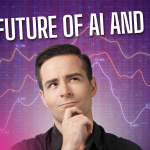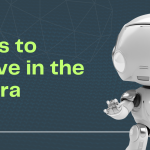Quick Take:
AI’s potential to replace human labor is not the true issue; the real problem lies in a societal structure that ties survival and self-worth to work, even when abundance becomes possible.
A Society Built on Labor, Not Liberation
The fear surrounding AI replacing jobs often misses the mark. AI’s ability to automate tasks should represent a leap toward greater efficiency and abundance, freeing humans from mundane labor. Yet, our economic systems frame this progress as a threat because survival is intrinsically linked to having a job. Instead of embracing abundance, we view it with suspicion.
Historically, technological advancements—from the printing press to assembly lines—disrupted labor markets but also expanded possibilities. The difference with AI lies in the scale: its impact could render vast swaths of human labor redundant. Yet society’s response remains anchored in preserving jobs rather than questioning the necessity of tying income to employment.
Why Jobs = Survival
Our modern economy equates employment with access to basic needs like food, shelter, and healthcare. This isn’t an inherent truth but a construct of the systems we’ve built. Universal access to abundance, as enabled by AI, challenges deeply ingrained ideologies about merit, productivity, and the role of labor.
Take the hypothetical “blueberry button” that produces perfect fruit on demand. Instead of celebrating its potential to eliminate tedious agricultural work, society asks: What about the farmers? This reaction highlights a fear of change and a failure to decouple human dignity from labor.
AI’s Potential as a Liberator
If leveraged responsibly, AI could redefine how we meet basic needs:
• Universal Basic Income (UBI): Funded by AI-driven productivity, UBI could ensure everyone benefits from automation.
• Access Over Ownership: Democratizing access to AI tools could empower individuals and small businesses, reducing reliance on corporate gatekeepers.
• Reinvestment in Society: Using automation-driven profits to fund education, healthcare, and infrastructure could shift focus from profit to people.
Breaking Free from the Cage
Critics argue that AI will only entrench existing inequalities, benefiting corporations while displacing workers. This scenario isn’t inevitable—it’s a choice. Historically, progress has come through collective action, from labor laws to public libraries. Similarly, we can demand systems that prioritize human well-being over profit.
AI doesn’t have to replicate the flaws of capitalism. By reframing its role, we can turn a potential threat into a transformative opportunity.
Final Thoughts
The question isn’t whether AI will take jobs—it will. The real challenge is rethinking a societal framework that views automation as a danger instead of a liberation. By embracing policies that prioritize equity and abundance, we can create a future where work is a choice, not a necessity.


